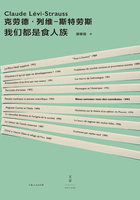Raskolnikov was not used to crowds, and, as we said before, he avoided society of every sort, more especially of late. But now all at once he felt a desire to be with other people. Something new seemed to be taking place within him, and with it he felt a sort of thirst for company. He was so weary after a whole month of concentrated wretchedness and gloomy excitement that he longed to rest, if only for a moment, in some other world, whatever it might be; and, in spite of the filthiness of the surroundings, he was glad now to stay in the tavern.
The master of the establishment was in another room, but he frequently came down some steps into the main room, his jaunty, tarred boots with red turn-over tops coming into view each time before the rest of his person. He wore a full coat and a horribly greasy black satin waistcoat, with no cravat, and his whole face seemed smeared with oil like an iron lock. At the counter stood a boy of about fourteen, and there was another boy somewhat younger who handed whatever was wanted. On the counter lay some sliced cucumber, some pieces of dried black bread, and some fish, chopped up small, all smelling very bad. It was insufferably close, and so heavy with the fumes of spirits that five minutes in such an atmosphere might well make a man drunk.
There are chance meetings with strangers that interest us from the first moment, before a word is spoken. Such was the impression made on Raskolnikov by the person sitting a little distance from him, who looked like a retired clerk. The young man often recalled this impression afterwards, and even ascribed it to presentiment. He looked repeatedly at the clerk, partly no doubt because the latter was staring persistently at him, obviously anxious to enter into conversation. At the other persons in the room, including the tavern- keeper, the clerk looked as though he were used to their company, and weary of it, showing a shade of condescending contempt for them as persons of station and culture inferior to his own, with whom it would be useless for him to converse. He was a man over fifty, bald and grizzled, of medium height, and stoutly built. His face, bloated from continual drinking, was of a yellow, even greenish, tinge, with swollen eyelids out of which keen reddish eyes gleamed like little chinks. But there was something very strange in him; there was a light in his eyes as though of intense feeling--perhaps there were even thought and intelligence, but at the same time there was a gleam of something like madness. He was wearing an old and hopelessly ragged black dress coat, with all its buttons missing except one, and that one he had buttoned, evidently clinging to this last trace of respectability. A crumpled shirt front, covered with spots and stains, protruded from his canvas waistcoat. Like a clerk, he wore no beard, nor moustache, but had been so long unshaven that his chin looked like a stiff greyish brush. And there was something respectable and like an official about his manner too. But he was restless; he ruffled up his hair and from time to time let his head drop into his hands dejectedly resting his ragged elbows on the stained and sticky table. At last he looked straight at Raskolnikov, and said loudly and resolutely:
"May I venture, honoured sir, to engage you in polite conversation? Forasmuch as, though your exterior would not command respect, my experience admonishes me that you are a man of education and not accustomed to drinking. I have always respected education when in conjunction with genuine sentiments, and I am besides a titular counsellor in rank. Marmeladov--such is my name; titular counsellor. I make bold to inquire--have you been in the service?"
"No, I am studying," answered the young man, somewhat surprised at the grandiloquent style of the speaker and also at being so directly addressed. In spite of the momentary desire he had just been feeling for company of any sort, on being actually spoken to he felt immediately his habitual irritable and uneasy aversion for any stranger who approached or attempted to approach him.
"A student then, or formerly a student," cried the clerk. "Just what I thought! I'm a man of experience, immense experience, sir," and he tapped his forehead with his fingers in self-approval. "You've been a student or have attended some learned institution!…But allow me……" He got up, staggered, took up his jug and glass, and sat down beside the young man, facing him a little sideways. He was drunk, but spoke fluently and boldly, only occasionally losing the thread of his sentences and drawling his words. He pounced upon Raskolnikov as greedily as though he too had not spoken to a soul for a month.
"Honoured sir," he began almost with solemnity, "poverty is not a vice, that's a true saying. Yet I know too that drunkenness is not a virtue, and that that's even truer. But beggary, honoured sir, beggary is a vice. In poverty you may still retain your innate nobility of soul, but in beggary--never--no one. For beggary a man is not chased out of human society with a stick, he is swept out with a broom, so as to make it as humiliating as possible; and quite right, too, forasmuch as in beggary I am ready to be the first to humiliate myself. Hence the pot-house! Honoured sir, a month ago Mr. Lebeziatnikov gave my wife a beating, and my wife is a very different matter from me! Do you understand? Allow me to ask you another question out of simple curiosity: have you ever spent a night on a hay barge, on the Neva?"
"No, I have not happened to," answered Raskolnikov. "What do you mean?"
"Well, I've just come from one and it's the fifth night I've slept so……" He filled his glass, emptied it and paused. Bits of hay were in fact clinging to his clothes and sticking to his hair. It seemed quite probable that he had not undressed or washed for the last five days. His hands, particularly, were filthy. They were fat and red, with black nails.
His conversation seemed to excite a general though languid interest. The boys at the counter fell to sniggering. The innkeeper came down from the upper room, apparently on purpose to listen to the "funny fellow" and sat down at a little distance, yawning lazily, but with dignity. Evidently Marmeladov was a familiar figure here, and he had most likely acquired his weakness for high-flown speeches from the habit of frequently entering into conversation with strangers of all sorts in the tavern. This habit develops into a necessity in some drunkards, and especially in those who are looked after sharply and kept in order at home. Hence in the company of other drinkers they try to justify themselves and even if possible obtain consideration.
"Funny fellow!" pronounced the innkeeper. "And why don't you work, why aren't you at your duty, if you are in the service?"
"Why am I not at my duty, honoured sir," Marmeladov went on, addressing himself exclusively to Raskolnikov, as though it had been he who put that question to him. "Why am I not at my duty? Does not my heart ache to think what a useless worm I am? A month ago when Mr. Lebeziatnikov beat my wife with his own hands, and I lay drunk, didn't I suffer? Excuse me, young man, has it ever happened to you…hm…well, to petition hopelessly for a loan?"
"Yes, it has. But what do you mean by hopelessly?"
"Hopelessly in the fullest sense, when you know beforehand that you will get nothing by it. You know, for instance, beforehand with positive certainty that this man, this most reputable and exemplary citizen, will on no consideration give you money; and indeed I ask you why should he? For he knows of course that I shan't pay it back. From compassion? But Mr. Lebeziatnikov who keeps up with modern ideas explained the other day that compassion is forbidden nowadays by science itself, and that that's what is done now in England, where there is political economy. Why, I ask you, should he give it to me? And yet though I know beforehand that he won't, I set off to him and…"
"Why do you go?" put in Raskolnikov.
"Well, when one has no one, nowhere else one can go! For every man must have somewhere to go. Since there are times when one absolutely must go somewhere! When my own daughter first went out with a yellow ticket, then I had to go…(for my daughter has a yellow passport)," he added in parenthesis, looking with a certain uneasiness at the young man. "No matter, sir, no matter!" he went on hurriedly and with apparent composure when both the boys at the counter guffawed and even the innkeeper smiled--"No matter, I am not confounded by the wagging of their heads; for everyone knows everything about it already, and all that is secret is made open. And I accept it all, not with contempt, but with humility. So be it! So be it! 'Behold the man!' Excuse me, young man, can you……No, to put it more strongly and more distinctly; not /can/ you but /dare/ you, looking upon me, assert that I am not a pig?"
The young man did not answer a word.
"Well," the orator began again stolidly and with even increased dignity, after waiting for the laughter in the room to subside. "Well, so be it, I am a pig, but she is a lady! I have the semblance of a beast, but Katerina Ivanovna, my spouse, is a person of education and an officer's daughter. Granted, granted, I am a scoundrel, but she is a woman of a noble heart, full of sentiments, refined by education. And yet…oh, if only she felt for me! Honoured sir, honoured sir, you know every man ought to have at least one place where people feel for him! But Katerina Ivanovna, though she is magnanimous, she is unjust……And yet, although I realise that when she pulls my hair she only does it out of pity--for I repeat without being ashamed, she pulls my hair, young man," he declared with redoubled dignity, hearing the sniggering again--"but, my God, if she would but once……But no, no! It's all in vain and it's no use talking! No use talking! For more than once, my wish did come true and more than once she has felt for me but…such is my fate and I am a beast by nature!"
"Rather!" assented the innkeeper yawning. Marmeladov struck his fist resolutely on the table.
"Such is my fate! Do you know, sir, do you know, I have sold her very stockings for drink? Not her shoes--that would be more or less in the order of things, but her stockings, her stockings I have sold for drink! Her mohair shawl I sold for drink, a present to her long ago, her own property, not mine; and we live in a cold room and she caught cold this winter and has begun coughing and spitting blood too. We have three little children and Katerina Ivanovna is at work from morning till night; she is scrubbing and cleaning and washing the children, for she's been used to cleanliness from a child. But her chest is weak and she has a tendency to consumption and I feel it! Do you suppose I don't feel it? And the more I drink the more I feel it. That's why I drink too. I try to find sympathy and feeling in drink……I drink so that I may suffer twice as much!" And as though in despair he laid his head down on the table.
"Young man," he went on, raising his head again, "in your face I seem to read some trouble of mind. When you came in I read it, and that was why I addressed you at once. For in unfolding to you the story of my life, I do not wish to make myself a laughing-stock before these idle listeners, who indeed know all about it already, but I am looking for a man of feeling and education. Know then that my wife was educated in a high-class school for the daughters of noblemen, and on leaving she danced the shawl dance before the governor and other personages for which she was presented with a gold medal and a certificate of merit. The medal…well, the medal of course was sold--long ago, hm…but the certificate of merit is in her trunk still and not long ago she showed it to our landlady. And although she is most continually on bad terms with the landlady, yet she wanted to tell someone or other of her past honours and of the happy days that are gone. I don't condemn her for it, I don't blame her, for the one thing left her is recollection of the past, and all the rest is dust and ashes. Yes, yes, she is a lady of spirit, proud and determined. She scrubs the floors herself and has nothing but black bread to eat, but won't allow herself to be treated with disrespect. That's why she would not overlook Mr. Lebeziatnikov's rudeness to her, and so when he gave her a beating for it, she took to her bed more from the hurt to her feelings than from the blows. She was a widow when I married her, with three children, one smaller than the other. She married her first husband, an infantry officer, for love, and ran away with him from her father's house. She was exceedingly fond of her husband; but he gave way to cards, got into trouble and with that he died. He used to beat her at the end: and although she paid him back, of which I have authentic documentary evidence, to this day she speaks of him with tears and she throws him up to me; and I am glad, I am glad that, though only in imagination, she should think of herself as having once been happy……And she was left at his death with three children in a wild and remote district where I happened to be at the time; and she was left in such hopeless poverty that, although I have seen many ups and downs of all sort, I don't feel equal to describing it even. Her relations had all thrown her off. And she was proud, too, excessively proud……And then, honoured sir, and then, I, being at the time a widower, with a daughter of fourteen left me by my first wife, offered her my hand, for I could not bear the sight of such suffering. You can judge the extremity of her calamities, that she, a woman of education and culture and distinguished family, should have consented to be my wife. But she did! Weeping and sobbing and wringing her hands, she married me! For she had nowhere to turn! Do you understand, sir, do you understand what it means when you have absolutely nowhere to turn? No, that you don't understand yet……And for a whole year, I performed my duties conscientiously and faithfully, and did not touch this" (he tapped the jug with his finger), "for I have feelings. But even so, I could not please her; and then I lost my place too, and that through no fault of mine but through changes in the office; and then I did touch it!…It will be a year and a half ago soon since we found ourselves at last after many wanderings and numerous calamities in this magnificent capital, adorned with innumerable monuments. Here I obtained a situation……I obtained it and I lost it again. Do you understand? This time it was through my own fault I lost it: for my weakness had come out……We have now part of a room at Amalia Fyodorovna Lippevechsel's; and what we live upon and what we pay our rent with, I could not say. There are a lot of people living there besides ourselves. Dirt and disorder, a perfect Bedlam…hm…yes…And meanwhile my daughter by my first wife has grown up; and what my daughter has had to put up with from her step-mother whilst she was growing up, I won't speak of. For, though Katerina Ivanovna is full of generous feelings, she is a spirited lady, irritable and short--tempered……Yes. But it's no use going over that! Sonia, as you may well fancy, has had no education. I did make an effort four years ago to give her a course of geography and universal history, but as I was not very well up in those subjects myself and we had no suitable books, and what books we had…hm, anyway we have not even those now, so all our instruction came to an end. We stopped at Cyrus of Persia. Since she has attained years of maturity, she has read other books of romantic tendency and of late she had read with great interest a book she got through Mr. Lebeziatnikov, Lewes' Physiology--do you know it?--and even recounted extracts from it to us: and that's the whole of her education. And now may I venture to address you, honoured sir, on my own account with a private question. Do you suppose that a respectable poor girl can earn much by honest work? Not fifteen farthings a day can she earn, if she is respectable and has no special talent and that without putting her work down for an instant! And what's more, Ivan Ivanitch Klopstock the civil counsellor--have you heard of him?--has not to this day paid her for the half-dozen linen shirts she made him and drove her roughly away, stamping and reviling her, on the pretext that the shirt collars were not made like the pattern and were put in askew. And there are the little ones hungry……And Katerina Ivanovna walking up and down and wringing her hands, her cheeks flushed red, as they always are in that disease: 'Here you live with us,' says she, 'you eat and drink and are kept warm and you do nothing to help.' And much she gets to eat and drink when there is not a crust for the little ones for three days! I was lying at the time…well, what of it! I was lying drunk and I heard my Sonia speaking (she is a gentle creature with a soft little voice…fair hair and such a pale, thin little face). She said: 'Katerina Ivanovna, am I really to do a thing like that?' And Darya Frantsovna, a woman of evil character and very well known to the police, had two or three times tried to get at her through the landlady. 'And why not?' said Katerina Ivanovna with a jeer, 'you are something mighty precious to be so careful of!' But don't blame her, don't blame her, honoured sir, don't blame her! She was not herself when she spoke, but driven to distraction by her illness and the crying of the hungry children; and it was said more to wound her than anything else……For that's Katerina Ivanovna's character, and when children cry, even from hunger, she falls to beating them at once. At six o'clock I saw Sonia get up, put on her kerchief and her cape, and go out of the room and about nine o'clock she came back. She walked straight up to Katerina Ivanovna and she laid thirty roubles on the table before her in silence. She did not utter a word, she did not even look at her, she simply picked up our big green /drap de dames/ shawl (we have a shawl, made of /drap de dames/), put it over her head and face and lay down on the bed with her face to the wall; only her little shoulders and her body kept shuddering……And I went on lying there, just as before……And then I saw, young man, I saw Katerina Ivanovna, in the same silence go up to Sonia's little bed; she was on her knees all the evening kissing Sonia's feet, and would not get up, and then they both fell asleep in each other's arms…together, together…yes…and I…lay drunk."
Marmeladov stopped short, as though his voice had failed him. Then he hurriedly filled his glass, drank, and cleared his throat.
"Since then, sir," he went on after a brief pause--"Since then, owing to an unfortunate occurrence and through information given by evil- intentioned persons--in all which Darya Frantsovna took a leading part on the pretext that she had been treated with want of respect--since then my daughter Sofya Semyonovna has been forced to take a yellow ticket, and owing to that she is unable to go on living with us. For our landlady, Amalia Fyodorovna would not hear of it (though she had backed up Darya Frantsovna before) and Mr. Lebeziatnikov too…hm……All the trouble between him and Katerina Ivanovna was on Sonia's account. At first he was for making up to Sonia himself and then all of a sudden he stood on his dignity: 'how,' said he, 'can a highly educated man like me live in the same rooms with a girl like that?' And Katerina Ivanovna would not let it pass, she stood up for her…and so that's how it happened. And Sonia comes to us now, mostly after dark; she comforts Katerina Ivanovna and gives her all she can……She has a room at the Kapernaumovs' the tailors, she lodges with them; Kapernaumov is a lame man with a cleft palate and all of his numerous family have cleft palates too. And his wife, too, has a cleft palate. They all live in one room, but Sonia has her own, partitioned off……Hm…yes…very poor people and all with cleft palates…yes. Then I got up in the morning, and put on my rags, lifted up my hands to heaven and set off to his excellency Ivan Afanasyvitch. His excellency Ivan Afanasyvitch, do you know him? No? Well, then, it's a man of God you don't know. He is wax…wax before the face of the Lord; even as wax melteth!…His eyes were dim when he heard my story. 'Marmeladov, once already you have deceived my expectations…I'll take you once more on my own responsibility'--that's what he said, 'remember,' he said, 'and now you can go.' I kissed the dust at his feet--in thought only, for in reality he would not have allowed me to do it, being a statesman and a man of modern political and enlightened ideas. I returned home, and when I announced that I'd been taken back into the service and should receive a salary, heavens, what a to-do there was…!"
Marmeladov stopped again in violent excitement. At that moment a whole party of revellers already drunk came in from the street, and the sounds of a hired concertina and the cracked piping voice of a child of seven singing "The Hamlet" were heard in the entry. The room was filled with noise. The tavern-keeper and the boys were busy with the new-comers. Marmeladov paying no attention to the new arrivals continued his story. He appeared by now to be extremely weak, but as he became more and more drunk, he became more and more talkative. The recollection of his recent success in getting the situation seemed to revive him, and was positively reflected in a sort of radiance on his face. Raskolnikov listened attentively.
"That was five weeks ago, sir. Yes……As soon as Katerina Ivanovna and Sonia heard of it, mercy on us, it was as though I stepped into the kingdom of Heaven. It used to be: you can lie like a beast, nothing but abuse. Now they were walking on tiptoe, hushing the children. 'Semyon Zaharovitch is tired with his work at the office, he is resting, shh!' They made me coffee before I went to work and boiled cream for me! They began to get real cream for me, do you hear that? And how they managed to get together the money for a decent outfit-- eleven roubles, fifty copecks, I can't guess. Boots, cotton shirt- fronts--most magnificent, a uniform, they got up all in splendid style, for eleven roubles and a half. The first morning I came back from the office I found Katerina Ivanovna had cooked two courses for dinner--soup and salt meat with horse radish--which we had never dreamed of till then. She had not any dresses…none at all, but she got herself up as though she were going on a visit; and not that she'd anything to do it with, she smartened herself up with nothing at all, she'd done her hair nicely, put on a clean collar of some sort, cuffs, and there she was, quite a different person, she was younger and better looking. Sonia, my little darling, had only helped with money 'for the time,' she said, 'it won't do for me to come and see you too often. After dark maybe when no one can see.' Do you hear, do you hear? I lay down for a nap after dinner and what do you think: though Katerina Ivanovna had quarrelled to the last degree with our landlady Amalia Fyodorovna only a week before, she could not resist then asking her in to coffee. For two hours they were sitting, whispering together. 'Semyon Zaharovitch is in the service again, now, and receiving a salary,' says she, 'and he went himself to his excellency and his excellency himself came out to him, made all the others wait and led Semyon Zaharovitch by the hand before everybody into his study.' Do you hear, do you hear? 'To be sure,' says he, 'Semyon Zaharovitch, remembering your past services,' says he, 'and in spite of your propensity to that foolish weakness, since you promise now and since moreover we've got on badly without you,' (do you hear, do you hear;) 'and so,' says he, 'I rely now on your word as a gentleman.' And all that, let me tell you, she has simply made up for herself, and not simply out of wantonness, for the sake of bragging; no, she believes it all herself, she amuses herself with her own fancies, upon my word she does! And I don't blame her for it, no, I don't blame her!…Six days ago when I brought her my first earnings in full--twenty-three roubles forty copecks altogether--she called me her poppet: 'poppet,' said she, 'my little poppet.' And when we were by ourselves, you understand? You would not think me a beauty, you would not think much of me as a husband, would you?…Well, she pinched my cheek, 'my little poppet,' said she."
Marmeladov broke off, tried to smile, but suddenly his chin began to twitch. He controlled himself however. The tavern, the degraded appearance of the man, the five nights in the hay barge, and the pot of spirits, and yet this poignant love for his wife and children bewildered his listener. Raskolnikov listened intently but with a sick sensation. He felt vexed that he had come here.
"Honoured sir, honoured sir," cried Marmeladov recovering himself-- "Oh, sir, perhaps all this seems a laughing matter to you, as it does to others, and perhaps I am only worrying you with the stupidity of all the trivial details of my home life, but it is not a laughing matter to me. For I can feel it all……And the whole of that heavenly day of my life and the whole of that evening I passed in fleeting dreams of how I would arrange it all, and how I would dress all the children, and how I should give her rest, and how I should rescue my own daughter from dishonour and restore her to the bosom of her family……And a great deal more……Quite excusable, sir. Well, then, sir" (Marmeladov suddenly gave a sort of start, raised his head and gazed intently at his listener) "well, on the very next day after all those dreams, that is to say, exactly five days ago, in the evening, by a cunning trick, like a thief in the night, I stole from Katerina Ivanovna the key of her box, took out what was left of my earnings, how much it was I have forgotten, and now look at me, all of you! It's the fifth day since I left home, and they are looking for me there and it's the end of my employment, and my uniform is lying in a tavern on the Egyptian bridge. I exchanged it for the garments I have on…and it's the end of everything!"
Marmeladov struck his forehead with his fist, clenched his teeth, closed his eyes and leaned heavily with his elbow on the table. But a minute later his face suddenly changed and with a certain assumed slyness and affectation of bravado, he glanced at Raskolnikov, laughed and said:
"This morning I went to see Sonia, I went to ask her for a pick-me-up! He-he-he!"
"You don't say she gave it to you?" cried one of the new-comers; he shouted the words and went off into a guffaw.
"This very quart was bought with her money," Marmeladov declared, addressing himself exclusively to Raskolnikov. "Thirty copecks she gave me with her own hands, her last, all she had, as I saw……She said nothing, she only looked at me without a word……Not on earth, but up yonder…they grieve over men, they weep, but they don't blame them, they don't blame them! But it hurts more, it hurts more when they don't blame! Thirty copecks yes! And maybe she needs them now, eh? What do you think, my dear sir? For now she's got to keep up her appearance. It costs money, that smartness, that special smartness, you know? Do you understand? And there's pomatum, too, you see, she must have things; petticoats, starched ones, shoes, too, real jaunty ones to show off her foot when she has to step over a puddle. Do you understand, sir, do you understand what all that smartness means? And here I, her own father, here I took thirty copecks of that money for a drink! And I am drinking it! And I have already drunk it! Come, who will have pity on a man like me, eh? Are you sorry for me, sir, or not? Tell me, sir, are you sorry or not? He-he-he!"
He would have filled his glass, but there was no drink left. The pot was empty.
"What are you to be pitied for?" shouted the tavern-keeper who was again near them.
Shouts of laughter and even oaths followed. The laughter and the oaths came from those who were listening and also from those who had heard nothing but were simply looking at the figure of the discharged government clerk.
"To be pitied! Why am I to be pitied?" Marmeladov suddenly declaimed, standing up with his arm outstretched, as though he had been only waiting for that question.
"Why am I to be pitied, you say? Yes! there's nothing to pity me for! I ought to be crucified, crucified on a cross, not pitied! Crucify me, oh judge, crucify me but pity me! And then I will go of myself to be crucified, for it's not merry-making I seek but tears and tribulation!…Do you suppose, you that sell, that this pint of yours has been sweet to me? It was tribulation I sought at the bottom of it, tears and tribulation, and have found it, and I have tasted it; but He will pity us Who has had pity on all men, Who has understood all men and all things, He is the One, He too is the judge. He will come in that day and He will ask: 'Where is the daughter who gave herself for her cross, consumptive step-mother and for the little children of another? Where is the daughter who had pity upon the filthy drunkard, her earthly father, undismayed by his beastliness?' And He will say, 'Come to me! I have already forgiven thee once……I have forgiven thee once……Thy sins which are many are forgiven thee for thou hast loved much……' And he will forgive my Sonia, He will forgive, I know it…I felt it in my heart when I was with her just now! And He will judge and will forgive all, the good and the evil, the wise and the meek……And when He has done with all of them, then He will summon us. 'You too come forth,' He will say, 'Come forth ye drunkards, come forth, ye weak ones, come forth, ye children of shame!' And we shall all come forth, without shame and shall stand before him. And He will say unto us, 'Ye are swine, made in the Image of the Beast and with his mark; but come ye also!' And the wise ones and those of understanding will say, 'Oh Lord, why dost Thou receive these men?' And He will say, 'This is why I receive them, oh ye wise, this is why I receive them, oh ye of understanding, that not one of them believed himself to be worthy of this.' And He will hold out His hands to us and we shall fall down before him…and we shall weep…and we shall understand all things! Then we shall understand all!…and all will understand, Katerina Ivanovna even…she will understand……Lord, Thy kingdom come!" And he sank down on the bench exhausted, and helpless, looking at no one, apparently oblivious of his surroundings and plunged in deep thought. His words had created a certain impression; there was a moment of silence; but soon laughter and oaths were heard again.
"That's his notion!"
"Talked himself silly!"
"A fine clerk he is!"
And so on, and so on.
"Let us go, sir," said Marmeladov all at once, raising his head and addressing Raskolnikov--"come along with me…Kozel's house, looking into the yard. I'm going to Katerina Ivanovna--time I did."
Raskolnikov had for some time been wanting to go and he had meant to help him. Marmeladov was much unsteadier on his legs than in his speech and leaned heavily on the young man. They had two or three hundred paces to go. The drunken man was more and more overcome by dismay and confusion as they drew nearer the house.
"It's not Katerina Ivanovna I am afraid of now," he muttered in agitation--"and that she will begin pulling my hair. What does my hair matter! Bother my hair! That's what I say! Indeed it will be better if she does begin pulling it, that's not what I am afraid of…it's her eyes I am afraid of…yes, her eyes…the red on her cheeks, too, frightens me…and her breathing too……Have you noticed how people in that disease breathe…when they are excited? I am frightened of the children's crying, too……For if Sonia has not taken them food…I don't know what's happened! I don't know! But blows I am not afraid of……Know, sir, that such blows are not a pain to me, but even an enjoyment. In fact I can't get on without it……It's better so. Let her strike me, it relieves her heart…it's better so…There is the house. The house of Kozel, the cabinet-maker…a German, well-to-do. Lead the way!"
They went in from the yard and up to the fourth storey. The staircase got darker and darker as they went up. It was nearly eleven o'clock and although in summer in Petersburg there is no real night, yet it was quite dark at the top of the stairs.
A grimy little door at the very top of the stairs stood ajar. A very poor-looking room about ten paces long was lighted up by a candle-end; the whole of it was visible from the entrance. It was all in disorder, littered up with rags of all sorts, especially children's garments. Across the furthest corner was stretched a ragged sheet. Behind it probably was the bed. There was nothing in the room except two chairs and a sofa covered with American leather, full of holes, before which stood an old deal kitchen-table, unpainted and uncovered. At the edge of the table stood a smoldering tallow-candle in an iron candlestick. It appeared that the family had a room to themselves, not part of a room, but their room was practically a passage. The door leading to the other rooms, or rather cupboards, into which Amalia Lippevechsel's flat was divided stood half open, and there was shouting, uproar and laughter within. People seemed to be playing cards and drinking tea there. Words of the most unceremonious kind flew out from time to time.
Raskolnikov recognised Katerina Ivanovna at once. She was a rather tall, slim and graceful woman, terribly emaciated, with magnificent dark brown hair and with a hectic flush in her cheeks. She was pacing up and down in her little room, pressing her hands against her chest; her lips were parched and her breathing came in nervous broken gasps. Her eyes glittered as in fever and looked about with a harsh immovable stare. And that consumptive and excited face with the last flickering light of the candle-end playing upon it made a sickening impression. She seemed to Raskolnikov about thirty years old and was certainly a strange wife for Marmeladov……She had not heard them and did not notice them coming in. She seemed to be lost in thought, hearing and seeing nothing. The room was close, but she had not opened the window; a stench rose from the staircase, but the door on to the stairs was not closed. From the inner rooms clouds of tobacco smoke floated in, she kept coughing, but did not close the door. The youngest child, a girl of six, was asleep, sitting curled up on the floor with her head on the sofa. A boy a year older stood crying and shaking in the corner, probably he had just had a beating. Beside him stood a girl of nine years old, tall and thin, wearing a thin and ragged chemise with an ancient cashmere pelisse flung over her bare shoulders, long outgrown and barely reaching her knees. Her arm, as thin as a stick, was round her brother's neck. She was trying to comfort him, whispering something to him, and doing all she could to keep him from whimpering again. At the same time her large dark eyes, which looked larger still from the thinness of her frightened face, were watching her mother with alarm. Marmeladov did not enter the door, but dropped on his knees in the very doorway, pushing Raskolnikov in front of him. The woman seeing a stranger stopped indifferently facing him, coming to herself for a moment and apparently wondering what he had come for. But evidently she decided that he was going into the next room, as he had to pass through hers to get there. Taking no further notice of him, she walked towards the outer door to close it and uttered a sudden scream on seeing her husband on his knees in the doorway.
"Ah!" she cried out in a frenzy, "he has come back! The criminal! the monster!…And where is the money? What's in your pocket, show me! And your clothes are all different! Where are your clothes? Where is the money! Speak!"
And she fell to searching him. Marmeladov submissively and obediently held up both arms to facilitate the search. Not a farthing was there.
"Where is the money?" she cried--"Mercy on us, can he have drunk it all? There were twelve silver roubles left in the chest!" and in a fury she seized him by the hair and dragged him into the room. Marmeladov seconded her efforts by meekly crawling along on his knees.
"And this is a consolation to me! This does not hurt me, but is a positive con-so-la-tion, ho-nou-red sir," he called out, shaken to and fro by his hair and even once striking the ground with his forehead. The child asleep on the floor woke up, and began to cry. The boy in the corner losing all control began trembling and screaming and rushed to his sister in violent terror, almost in a fit. The eldest girl was shaking like a leaf.
"He's drunk it! he's drunk it all," the poor woman screamed in despair --"and his clothes are gone! And they are hungry, hungry!"--and wringing her hands she pointed to the children. "Oh, accursed life! And you, are you not ashamed?"--she pounced all at once upon Raskolnikov--"from the tavern! Have you been drinking with him? You have been drinking with him, too! Go away!"
The young man was hastening away without uttering a word. The inner door was thrown wide open and inquisitive faces were peering in at it. Coarse laughing faces with pipes and cigarettes and heads wearing caps thrust themselves in at the doorway. Further in could be seen figures in dressing gowns flung open, in costumes of unseemly scantiness, some of them with cards in their hands. They were particularly diverted, when Marmeladov, dragged about by his hair, shouted that it was a consolation to him. They even began to come into the room; at last a sinister shrill outcry was heard: this came from Amalia Lippevechsel herself pushing her way amongst them and trying to restore order after her own fashion and for the hundredth time to frighten the poor woman by ordering her with coarse abuse to clear out of the room next day. As he went out, Raskolnikov had time to put his hand into his pocket, to snatch up the coppers he had received in exchange for his rouble in the tavern and to lay them unnoticed on the window. Afterwards on the stairs, he changed his mind and would have gone back.
"What a stupid thing I've done," he thought to himself, "they have Sonia and I want it myself." But reflecting that it would be impossible to take it back now and that in any case he would not have taken it, he dismissed it with a wave of his hand and went back to his lodging. "Sonia wants pomatum too," he said as he walked along the street, and he laughed malignantly--"such smartness costs money……Hm! And maybe Sonia herself will be bankrupt to-day, for there is always a risk, hunting big game…digging for gold…then they would all be without a crust to-morrow except for my money. Hurrah for Sonia! What a mine they've dug there! And they're making the most of it! Yes, they are making the most of it! They've wept over it and grown used to it. Man grows used to everything, the scoundrel!"
He sank into thought.
"And what if I am wrong," he cried suddenly after a moment's thought. "What if man is not really a scoundrel, man in general, I mean, the whole race of mankind--then all the rest is prejudice, simply artificial terrors and there are no barriers and it's all as it should be."















